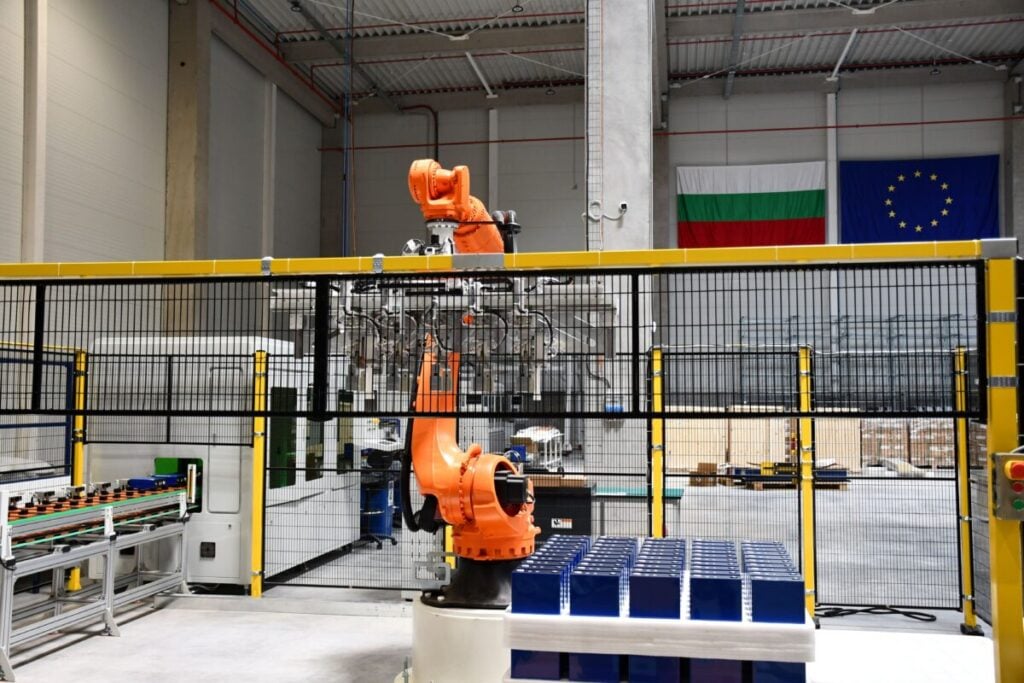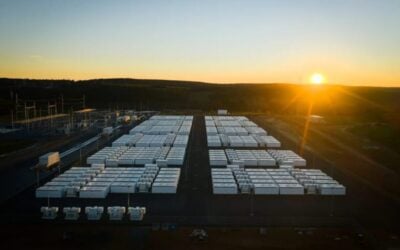
A new automated facility will need around 85% fewer employees per GWh of annual BESS manufacturing capacity, Bulgaria-based International Power Supply (IPS) said.
Talking to Energy-Storage.news in an interview for ESN Premium last week, IPS CEO Alexander Rangelov claimed the firm’s battery energy storage system (BESS) manufacturing in Bulgaria is the first ‘cell-to-system’ process in Europe.
Its capacity will reach 3GWh of capacity at the end of 2025 and then 4GWh once a new adjoining facility, which recently launched construction, is online. The firm is in the design phase of a larger, automated facility planned for 10GWh of capacity.
The current manufacturing processes requires around 30 employees per GWh of annual capacity. However, the planned 10GWh one will only require 45 employees in total, meaning an 85% reduction in the number of employees per GWh of capacity (from 30 to around 4.5).
Try Premium for just $1
- Full premium access for the first month at only $1
- Converts to an annual rate after 30 days unless cancelled
- Cancel anytime during the trial period
Premium Benefits
- Expert industry analysis and interviews
- Digital access to PV Tech Power journal
- Exclusive event discounts
Or get the full Premium subscription right away
Or continue reading this article for free
For the full 30-minute video interview and write-up, read our article on ESN Premium here.
Rangelov also explained that the majority of BESS assembly does not require a specialised workforce.
“The instructions and the workflow and the processes are designed in a simple way so that you you don’t need special mechanical engineers or electrical engineers,” he said.
“The only section or a zone where you need electrical engineering skills is for the final testing because it’s also related to to safety. Working with high voltages and high power always requires a higher grade of skills.”





